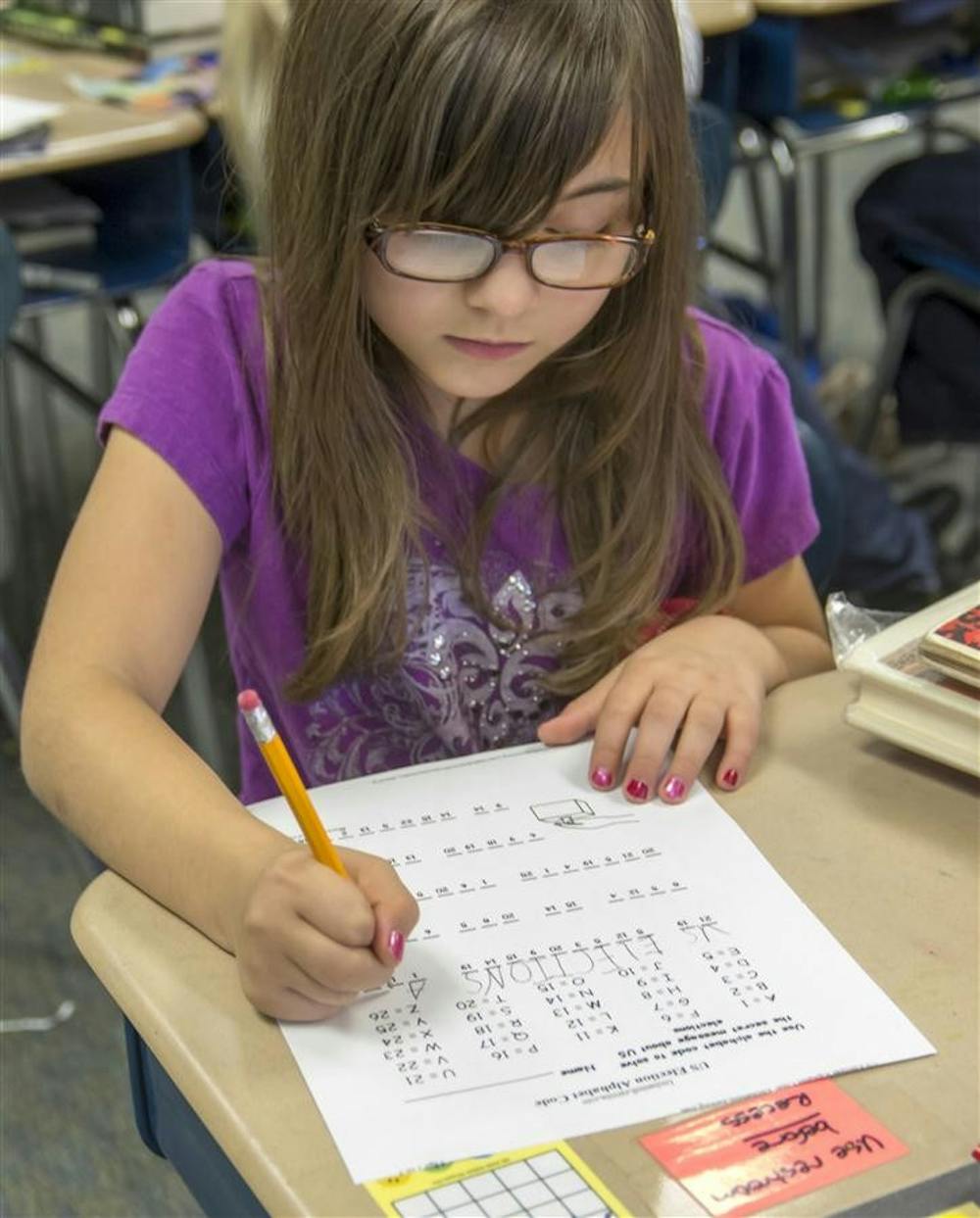If it were up to the students at Arlington Heights Elementary School, President Barack Obama would be re-elected today.
In Jennifer Fox’s third grade class, 8-year-olds called the shots, first taking the oath of office, then sitting on the carpet counting paper ballots.
Fox’s class was in charge of calculating the votes in the school’s mock presidential election.
Fox did a mock election in 2008 for the Democratic primary between Obama and Hillary Clinton to educate her students about the historical significance of having a woman or an African American as president. This year, she said the students were enjoying the election unit so much that she proposed a school-wide election for grades three through six.
“I want them to be familiar with what they’re seeing around the community and how the sequence of events happens and why it happens,” she said. “I want them to see the
bigger picture.”
Outside Fox’s classroom, a cardboard trifold atop a table formed the voting booth, decorated red and blue with signs bearing the slogans “Vote for the Democrat!” and “Vote for the Republican!” Behind the trifold, a plastic container held voting slips, pencils and handwritten “I voted!” stickers.
The booth was open all day for students, teachers and school employees working in the front office. When the clock struck 2:35 p.m., it was time to tally the results. The school’s election mimicked the national one, with an electoral college composed of classrooms and the office as well as a popular vote.
Fox distributed the ballots, to the students. They scattered around the room and eagerly counted them.
As she counted, 10-year-old Cashae McEwen said she had mixed feelings about who to vote for since her mother and father each support a different candidate.
“I like the Democrats and the Republicans,” she said. “It was hard for me to choose.”
Once the students tabulated the votes, Fox projected a school map in front of the class and colored the rooms with blue for Obama and red for Republican presidential candidate Mitt Romney.
She gave the students a chance to shout the teacher’s name before announcing which candidate had won the classroom but chided them for cheering. She reminded them they were to remain silent about their political leanings.
“We’re proud of both candidates,” 8-year-old Zack Rhone said. “When they get out there to debate, they probably get scared and nervous, and they’ve got to talk in front of all those people.”
Fox had emphasized privacy in the class’ election unit, telling students not to talk about who they wanted to vote for. The unit covered political ads, polls, bumper stickers, the national conventions, party colors and animals, and computer ballots vs. paper ballots.
With the final count in, Obama led Romney five electoral votes to three and won the popular vote 107 to 54.
Many of the children squealed with excitement after hearing the results, but Fox warned them not to tell anyone.
“How many people can keep a secret until Wednesday?” Fox said.
Some put their thumbs up, some put their thumbs down and some put their thumbs sideways.
“Well, you’re gonna have to,” she told them.
Fox said she was surprised by the large difference in the numbers considering how close she considers the real election to be. She was also surprised the students picked Obama to win.
But that isn’t what matters to her most. What she wants the students to take from the experience is the importance of the election process. She said she wants them to go out and vote when they turn 18.
Some students are getting a head start. Justus Morgan, 8, took a field trip to the polls with his mother during the weekend to observe the real voting process firsthand.
Though Fox is unsure of how Tuesday’s national election will go, she doesn’t want the students to be discouraged by conflicting results.
“I hope, for their sake, (the national election) reflects what they’ve shown, because I want them to feel that they can represent it,” she said. “But if it doesn’t, it’ll still be a good learning experience.”
Obama wins in elementary school vote

Get stories like this in your inbox
Subscribe





